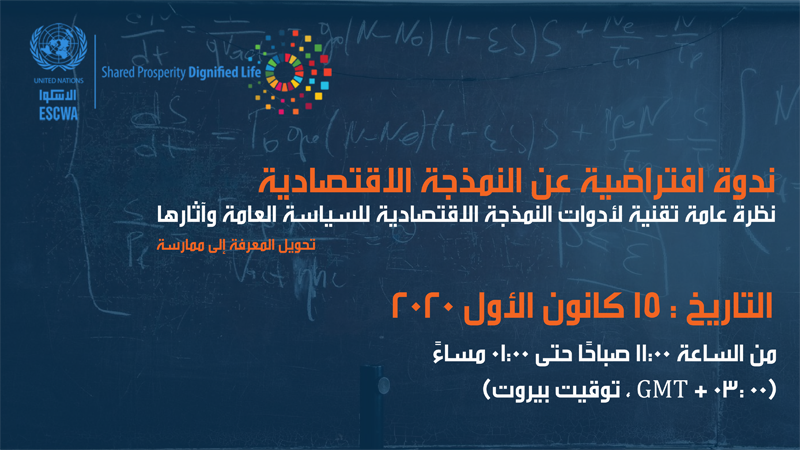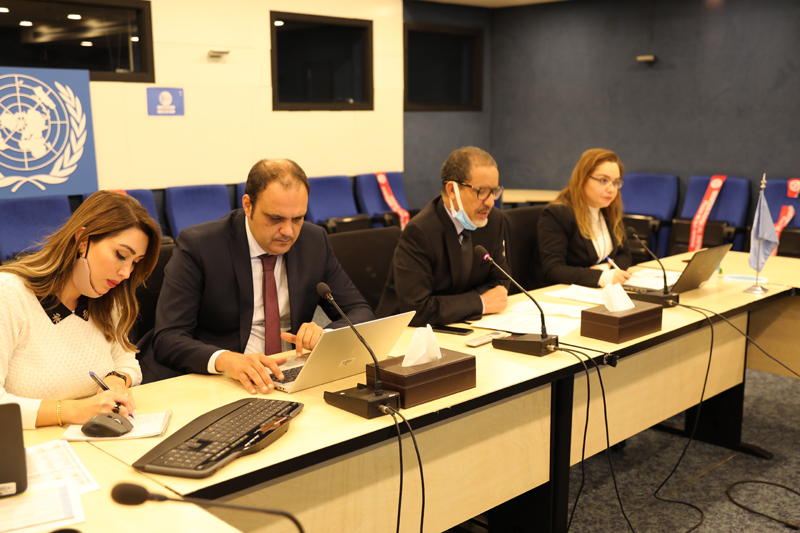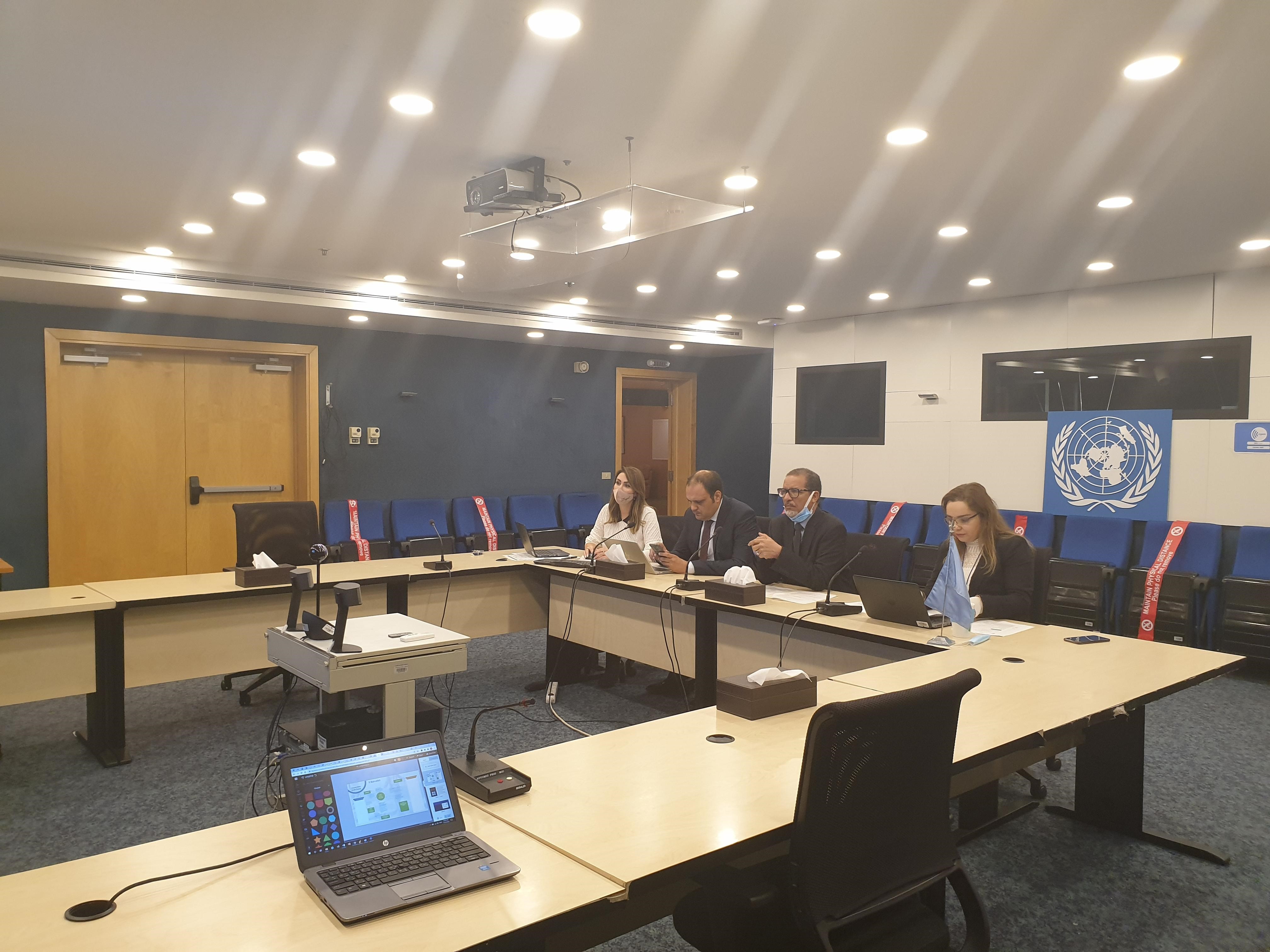ESCWA is organizing a webinar “A Nontechnical Overview of Economic Modelling Tools for Public Policy and Impact: Morphing Knowledge into Practice”. This webinar aims to provide participants with a practical toolbox and roadmap to building smarter policies that can potentially save lives.
2020 has been a particularly hard year for the world. The COVID-19 pandemic disrupted global production chains and demand, heavily accentuating existing inequalities and hitting hardest the most vulnerable populations. This is particularly true for the least developed countries and conflict affected countries in the region that lack the appropriate fiscal space to enact needed stimulus packages. Certainly, questions of economic policy are central to the challenges we face. How do we ensure the implementation of policies that support sustainable and inclusive growth? How do we ensure that people are not left behind? It’s by bridging the divide between the production of knowledge and the use of knowledge.
Simply put, an economic model is a simplified mathematical representation of the economy. If done correctly, adopting economic modelling tools will enable a more rigorous and systematic approach to the evaluation of national economic strategies and policy frameworks.
This webinar will provide a sneak peek at ESCWA Modelling Toolbox, while the main focus will be on one specific tool, the Computable General Equilibrium (CGE) model. Essentially, a CGE model allows you to assess the impact of a changes in policy, shock or external factor on the economy and social groups by building “What if scenarios”. Hence, complex interdependencies within the economy are taken into consideration using macroeconomic principles and national data to provide socio-economic impact assessments.
In the opening session, participants will be introduced to the benefits and challenges of incorporating economic modelling tools within governmental structures, with an emphasis on their utility in time of crisis and high levels of uncertainty. In fact, the majority of ESCWA Member States have developed their own CGE model in collaboration with ESCWA for a wide range of purposes. This will be further explored during the webinar with first-hand experience from Member States Tunisia, Jordan and Lebanon. Also, participants will receive first-hand experience from ESCWA International and Regional partners on how to best build partnerships that ensure the success and sustainability of yours programs/projects. Finally, during the last session participants will have an inclusive look at how ESCWA is achieving its mission of supporting Member States in building national and regional technical capacity for economic modeling. The webinar will be concluded with a Q&A session led by ESCWA experts.



